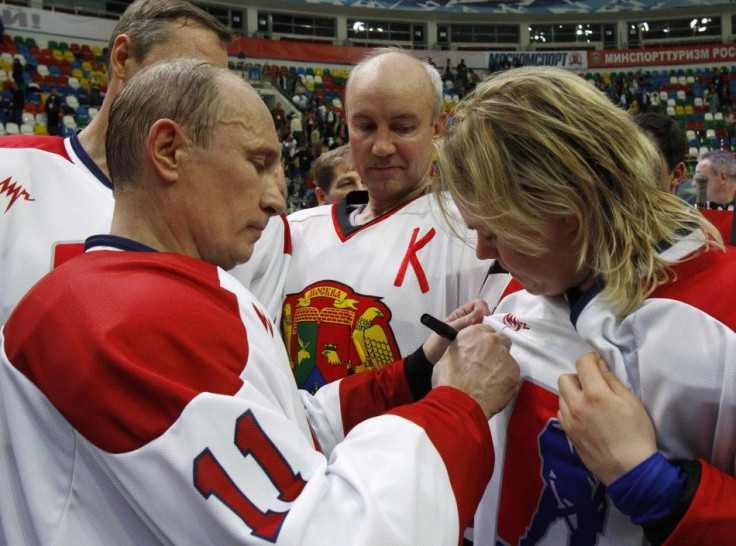More Olympic Troubles Ahead For Putin?
Opinion

After Russia's disappointing showing at the London Olympics comes more bad news for Vladimir Putin's.
It was reported earlier this week that the 2014 Sochi Winter Olympics -- Putin's own pet project --may be in trouble. According to the auditor of Russia's Accounts Chamber, Alexander Piskunov, the growing problem of contractors threatening to withdraw from preparation in order to force organizers to pay inflated fees could mean that necessary deadlines in preparation for the Sochi Opening Ceremony may not be met.
At the very least, it means the Russian taxpayers will shoulder the spiralling costs that result from this scenario.
Piskunov's critiques are only the latest in a series of difficulties for Sochi 2014, which has been marred by accusations of corruption and disorganization. If these difficulties come to pass, it would represent a major blow to Russia's national -- and Putin's personal -- prestige.
After all, this is a nation that for many years prided itself on its pre-eminence in the Olympics. What's more, a country run by a man who prides himself on public displays of sportsmanship and vigour, who was so intent on bringing the Olympics to a town known to most Russians for its summer resorts.
Yet the threat to Sochi is a logical outgrowth of the system of state-sanctioned corruption Putin has nurtured over the past decade, and that appears to be beginning the inevitable process of unravelling.
Journalists such as Julia Ioffe have reported that businesses involved in Sochi have to pay kickbacks of up to 50 percent. Is it any wonder that, in an environment shaped by corruption, legal obligations might fail to be met, and an unaccountable state may end up shelling out for massively overpriced construction projects?
Preparations for Sochi have also been marred by human rights abuses. Human Rights Watch has reported widespread exploitation of migrant workers on Olympic sites, forced evictions of Sochi residents to make room for Olympic construction, and harassment of activists and writers who have attempted to document and protest against these developments.
Arguably, Putin's greatest "victory" in the 2012 Olympics was to avoid making any concessions on Syria to the UK Prime Minister David Cameron during their personal meeting -- achieving what was likely his intention to make Cameron look foolish and Putin appear stalwart as ever.
This is somewhat grimly reflective of the narrow role Putin increasingly occupies, both in Russia and the wider world. His victories increasingly entail the suffering of other people.
Julia Pettengill is the Chair of the Russia Studies Centre at the Henry Jackson Society, a foreign policy think tank based in London.
© Copyright IBTimes 2024. All rights reserved.





















